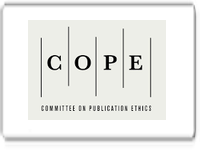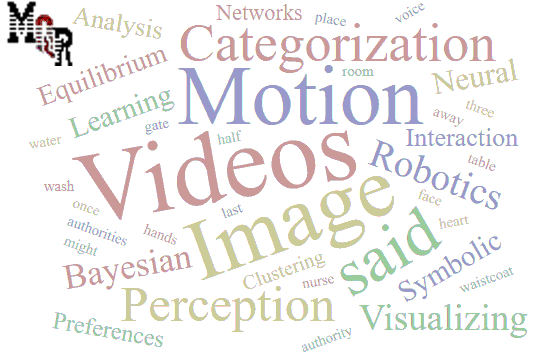Inmunoterapia en cáncer de colon en paciente con tuberculosis y covid 19 – reporte de caso.
DOI:
https://doi.org/10.56048/MQR20225.7.3.2023.3051-3068Palabras clave:
carcinoma, colon, inmunoterapia, covid 19, tuberculosis.Resumen
Antecedentes: el siguiente estudio de caso consiste en un con cáncer de colon que fue tratado con quimio e inmunoterapia, donde implica la administración de terapia dirigida que ayudan al cuerpo a encontrar y destruir células cancerosas. Sin embargo, la aparición de enfermedades infecciosas como la tuberculosis o COVID 19, complejizan dicho sistema inmune. La siguiente investigación pretende demostrar la eficacia de la quimio e inmunoterapia en un paciente con cáncer de colon metastásico, que concomitantemente presentó COVID 19 y Tuberculosis. Presentación del caso: Paciente masculino de 38 años, con diagnóstico adenocarcinoma de colon, al que se le practicó una hemicolectomia + ileostomia de alto débito, en otra casa de salud. Durante el ingreso para terapia oncológica, padeció ITU, Covid-19, Aspergilosis y Tuberculosis pulmonar, cuya atención interrumpió la oncoterapia. Conclusiones: El trabajo multidisciplinario realizado por los especialistas de las distintas áreas, permitieron atender las diferentes patologías adquiridas, así como la de base, con una mejoría en el paciente en cuanto al estado general, los parámetros, la validez, tolerancia a la vía oral, y comenzó a caminar. Hubo una disminución del tamaño de los nódulos, luego de la inmunoterapia, respuesta al tratamiento parcial. Resultado que puede catalogarse de satisfactorio teniendo en cuenta todas las patologías que interrumpieron el tratamiento durante la estadía hospitalaria.
Descargas
Métricas
Cited
DOI: 10.56048![]()
Citas
Morris VK, Kennedy EB, Baxter NN, Benson AB, Cercek A, Cho M, et al. Treatment of Metastatic Colorectal Cancer: ASCO Guideline. JCO ;41(3):678-700.
Benson AB, Venook AP, Al-Hawary MM, Azad N, Chen YJ, Ciombor KK, et al. Rectal Cancer, Version 2.2022, NCCN Clinical Practice Guidelines in Oncology. Journal of the National Comprehensive Cancer Network;20(10):1139-67.
Hossain MdS, Karuniawati H, Jairoun AA, Urbi Z, Ooi DJ, John A, et al. Colorectal Cancer: A Review of Carcinogenesis, Global Epidemiology, Current Challenges, Risk Factors, Preventive and Treatment Strategies. Cancers. ;14(7):1732.
Hou W, Yi C, Zhu H. Predictive biomarkers of colon cancer immunotherapy: Present and future. Front Immunol; 13:1032314.
Parolina L, Pshenichnaya N, Vasilyeva I, Lizinfed I, Urushadze N, Guseva V, et al. Clinical characteristics of COVID-19 in patients with tuberculosis and factors associated with the disease severity. International Journal of Infectious Diseases ;124: S82-9.
Siegel RL, Wagle NS, Cercek A, Smith RA, Jemal A. Colorectal cancer statistics, 2023. CA A Cancer J Clinicians; caac.21772.
Rawla P, Sunkara T, Barsouk A. Epidemiology of colorectal cancer: incidence, mortality, survival, and risk factors. pg :89-103.
Defossez G, Uhry Z, Delafosse P, Dantony E, d’Almeida T, Plouvier S, et al. Cancer incidence and mortality trends in France over 1990–2018 for solid tumors: the sex gap is narrowing. BMC Cancer ;21(1):726.
Piñeros M, Laversanne M, Barrios E, Cancela M de C, de Vries E, Pardo C, et al. An updated profile of the cancer burden, patterns and trends in Latin America and the Caribbean. The Lancet Regional Health - Americas septiembre; 13:100294.
Silva GM da, Souza RAG de, Lima FC da S de, Caló R dos S, Andrade AC de S, Souza B da SN de, et al. Sobrevida do câncer colorretal na Grande Cuiabá, Mato Grosso, Brasil. Rev bras epidemiol;26.
Nascimento AQ, Dantas DB, Melo GS, Gomes F de C, de Melo Neto JS. Impact of sociodemographic factors and screening, diagnosis, and treatment strategies on colorectal cancer mortality in Brazil: A 20-year ecological study. Patel GK, editor. PLoS ONE;17(9):e0274572.
Verzeñassi D, Vallini A, Fernández F, Ferrazini L, Lasagna M, Sosa AJ, et al. Cancer incidence and death rates in Argentine rural towns surrounded by pesticide-treated agricultural land. Clinical Epidemiology and Global Health;20:101239.
Xi Y, Xu P. Global colorectal cancer burden in 2020 and projections to 2040. Translational Oncology [Internet]. octubre de 2021 ;14(10):101174.
Lu B, Li N, Luo CY, Cai J, Lu M, Zhang YH, et al. Colorectal cancer incidence and mortality: the current status, temporal trends and their attributable risk factors in 60 countries in 2000–2019. Chinese Medical Journal ;134(16):1941-51.
Vuik FE, Nieuwenburg SA, Bardou M, Lansdorp-Vogelaar I, Dinis-Ribeiro M, Bento MJ, et al.
Increasing incidence of colorectal cancer in young adults in Europe over the last 25 years. Gut;68(10):1820-6.
Cronin KA, Lake AJ, Scott S, Sherman RL, Noone AM, Howlader N, et al. Annual Report to the Nation on the Status of Cancer, part I: National cancer statistics: Annual Report National Cancer Statistics. Cancer ;124(13):2785-800.
Corral Cordero F, Cueva Ayala P, Yépez Maldonado J, Tarupi Montenegro W. Trends in cancer incidence and mortality over three decades in Quito - Ecuador. cm. 49(1):35-41.
Márquez Coronel JL, Saltos Carvajal JE, Triana Castro T. Prevalencia de obstrucción intestinal en pacientes con cáncer de colon: Un estudio transversal de centro único. Rev Oncol Ecu.
;32(3):300-9.
Vivanco Armijos HB, Guallasamín Chalco EF, Yépez Maldonado J. Impacto en la morbilidad de la técnica quirúrgica abierta vs cerrada en cáncer de colon: Un reporte de 6 años de un centro único. Rev Oncol. ;32(2):180-93.
Meršaková S, Lasabová Z, Strnádel J, Kalman M, Gabonova E, Sabaka P, et al. Genomic profile and immune contexture in colorectal cancer—relevance for prognosis and immunotherapy. Clin Exp Med :195-204.
Andre T, Amonkar M, Norquist JM, Shiu KK, Kim TW, Jensen BV, et al. Health-related quality of life in patients with microsatellite instability-high or mismatch repair deficient metastatic colorectal cancer treated with first-line pembrolizumab versus chemotherapy (KEYNOTE-177): an open-label, randomised, phase 3 trial. The Lancet Oncology. mayo de 2021;22(5):665-77.
Patsalias A, Kozovska Z. Personalized medicine: Stem cells in colorectal cancer treatment. Biomedicine & Pharmacotherapy. septiembre de 2021;141:111821.
Pelletier JPR, Mukhtar F. Passive Monoclonal and Polyclonal Antibody Therapies. En: Immunologic Concepts in Transfusion Medicine. Elsevier; 2020 p. 251-348.
Miller JS, Lanier LL. Natural Killer Cells in Cancer Immunotherapy. Annu Rev Cancer Biol.:77-103.
Riley RS, June CH, Langer R, Mitchell MJ. Delivery technologies for cancer immunotherapy. Nat Rev Drug Discov.;18(3):175-96.
Fritz JM, Lenardo MJ. Development of immune checkpoint therapy for cancer. Journal of Experimental Medicine.;216(6):1244-54.
Scriba TJ, Fiore-Gartland A, Penn-Nicholson A, Mulenga H, Kimbung Mbandi S, Borate B, et al. Biomarker-guided tuberculosis preventive therapy (CORTIS): a randomised controlled trial. The Lancet Infectious Diseases. :354-65.
Anastasopoulou A, Ziogas DC, Samarkos M, Kirkwood JM, Gogas H. Reactivation of tuberculosis in cancer patients following administration of immune checkpoint inhibitors: current evidence and clinical practice recommendations. j immunotherapy cancer ;7(1):239.
Guallar-Garrido S, Julián E. Bacillus Calmette-Guérin (BCG) Therapy for Bladder Cancer: An Update. ITT.;Volume 9:1-11.
Davola ME, Mossman KL. Oncolytic viruses: how “lytic” must they be for therapeutic efficacy?
OncoImmunology.;8(6):e1581528.
Groupe de Recherche en Reanimation Respiratoire du patient d’Onco-Hématologie (Grrr-OH), Lemiale V, Meert AP, Vincent F, Darmon M, Bauer PR, et al. Severe toxicity from checkpoint protein inhibitors: What intensive care physicians need to know? Ann Intensive Care.;9(1):25.
Gohil SH, Iorgulescu JB, Braun DA, Keskin DB, Livak KJ. Applying high-dimensional single-cell technologies to the analysis of cancer immunotherapy. Nat Rev Clin Oncol. abril de 2021;18(4):244-56.
Eastin C, Eastin T. Clinical Characteristics of Coronavirus Disease 2019 in China. The Journal of Emergency Medicine;58(4):711-2.
Liu Z, Xiao X, Wei X, Li J, Yang J, Tan H, et al. Composition and divergence of coronavirus spike proteins and host ACE2 receptors predict potential intermediate hosts of SARS‐CoV‐2. J Med Virol.;92(6):595-601.
Robilotti EV, Babady NE, Mead PA, Rolling T, Perez-Johnston R, Bernardes M, et al. Determinants of COVID-19 disease severity in patients with cancer. Nat Med.;26(8):1218-23.
Kmeid J, Kulkarni PA, Batista MV, El Chaer F, Prayag A, Ariza-Heredia EJ, Mulanovich VE, Chemaly RF. Active Mycobacterium tuberculosis infection at a comprehensive cancer center, 2006-2014. BMC Infect Dis. 2019 Nov 6;19(1):934.
Alaeddini M, Etemad-Moghadam S. SARS-Cov-2 infection in cancer patients, susceptibility, outcome and care. Am J Med Sci. 2022 Nov;364(5):511-520.
Li P, Li L, Wang S, Liu Y, Li Z, Xia S. Effect of antitumor therapy on cancer patients infected by SARS-CoV-2: A systematic review and meta-analysis. Cancer Med. 2021 Mar;10(5):1644-1655.
Amere Subbarao S. Cancer vs. SARS-CoV-2 induced inflammation, overlapping functions, and pharmacological targeting. Inflammopharmacology. 2021 Apr;29(2):343-366.
Publicado
Cómo citar
Número
Sección
Licencia
Derechos de autor 2023 MQRInvestigar

Esta obra está bajo una licencia internacional Creative Commons Atribución 4.0.
Los autores se comprometen a respetar la información académica de otros autores, y a ceder los derechos de autor a la Revista MQRInvestigar, para que el artículo pueda ser editado, publicado y distribuido. El contenido de los artículos científicos y de las publicaciones que aparecen en la revista es responsabilidad exclusiva de sus autores. La distribución de los artículos publicados se realiza bajo una licencia 



































